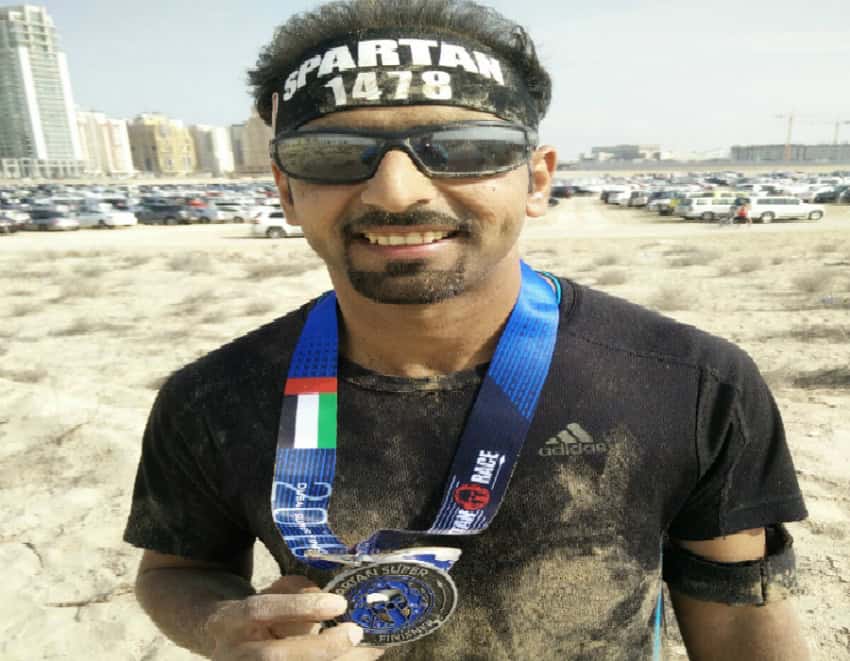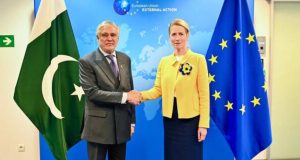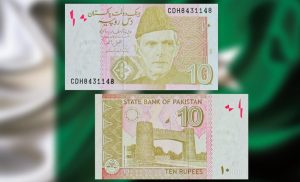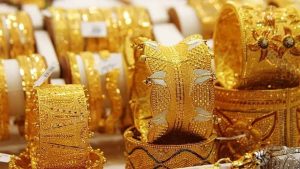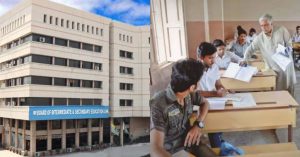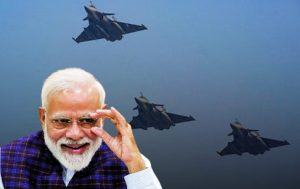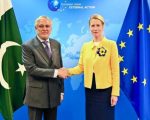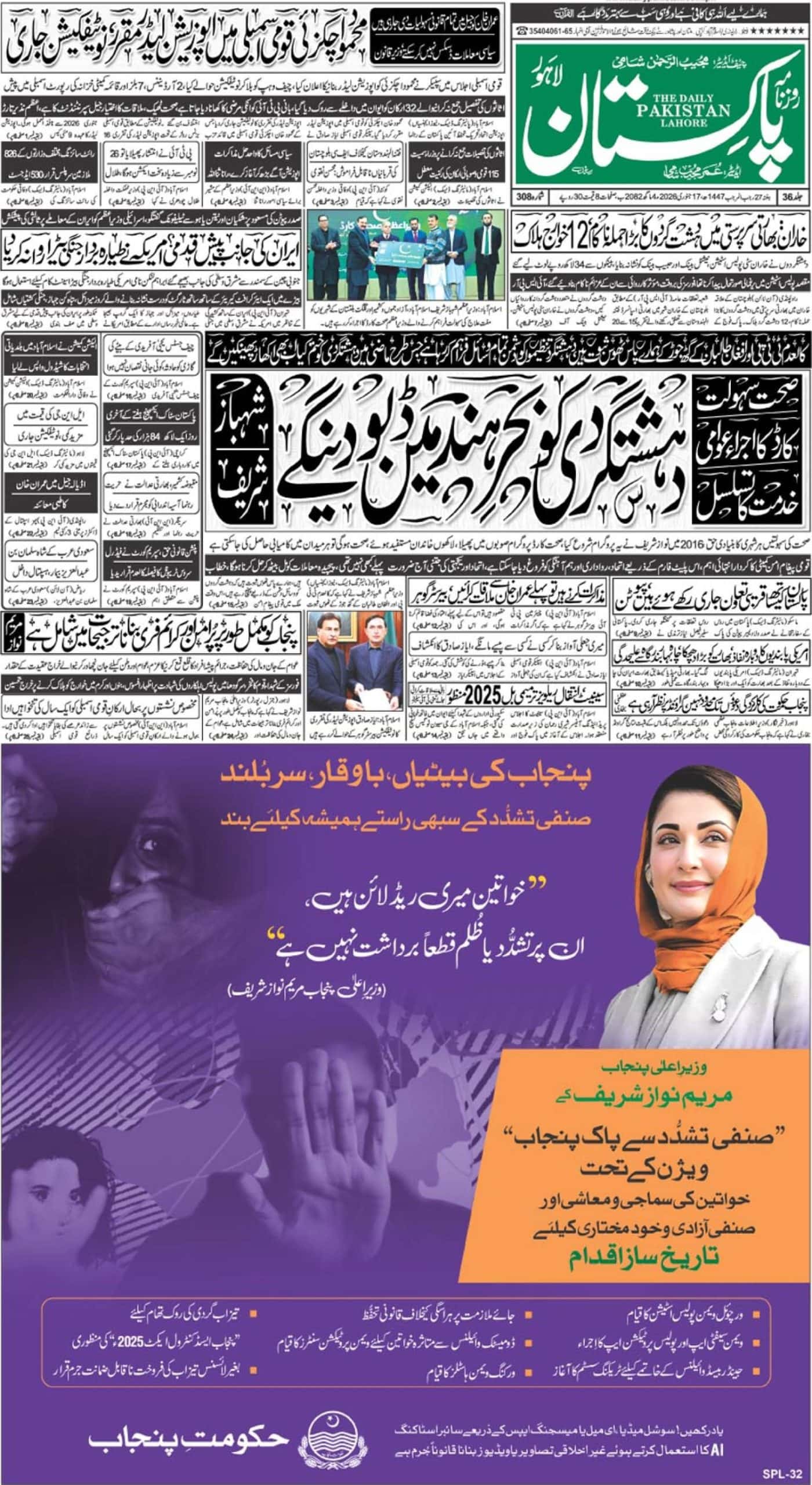Marathon des Sables (MDS) is dubbed the ‘Toughest Footrace on Earth’ by the Discovery Channel. This race is a 7-day ultramarathon where runners have to cover 257km in one of the world’s most inhospitable environments – the Sahara desert in Morocco. Next year, a Pakistani will be amongst the hundreds of people braving this distance.
Khawar Siddique is an Islamabad-based ultra-runner who will compete in the 50 degrees C heat of the Sahara desert carrying all food and equipment on his back for 7 days. The ultra race takes place over 6 stages where the terrain ranges from rocky grounds to soft sand dunes reaching as high as 1,000 feet. So why would anyone want to do it?

“I’m from Pakistan – a country with a proud history of producing world-class sportsmen like Jahangir Khan and Wasim Akram. These men are true athletes and have inspired me to play sports. However, after joining the workforce, like many others I too got busy and my participation in all athletic games took a backseat. In the summer of 2013, I had a terrible accident which left me bed-ridden for two months with a painful neck injury and concussion. I realised then that many of us don’t put in enough of an effort to maintain our health.”
World Health Organization’s Chronic Diseases Report states that chronic diseases are projected to account for 42% of all deaths in Pakistan. Also, deaths from such diseases will increase markedly by 27% and deaths from diabetes will increase by 51% by next year. These figures are alarming but if we consider our lifestyle choices, maybe it becomes clear why cardiovascular diseases and diabetes is on the rise. Most Pakistanis only consider physical activity to lose weight and do not always consider the fitness aspect of exercise. Not many speak of core strength or about maintaining a healthy BMI. WHO’s findings have made it clear that 80% of premature heart diseases, strokes, type 2 diabetes can be prevented through a healthy diet, regular physical activity and avoidance of tobacco products.
Similar statistics got Khawar motivated to raise awareness about health and fitness amongst the desi crowd. And what better way to do it then to take on the biggest challenge you can set for yourself as an ultra-runner – the MDS. So now that he has set his sights on the race how does he plan to fulfil his goal?
“From the very beginning, I knew that approaching MDS as an amateur runner without fully understanding the risks involved could take a deadly turn. So over the past couple of months, I intentionally increased participation in adventurous outdoor activities. I worked towards developing agility and endurance through competitive cycling, swimming and long-distance running. To-date, I have completed over 66 long-distance races including full marathons and trail runs.
 “Of course physical training and mental preparation is one aspect. The logistics of the race are mind boggling and can leave a huge dent in a runner’s savings. I have been obsessing over the race gear and some of the things I’ve had to research might sound weird to regular folk. Things like anti-venom pumps (for friendly critter and snake bites), freeze dried meals, sand-proof goggles, ultra-light t-shirts, training meal plans, specialized running shoes and gaiters for running in the desert. Not to mention, weight. Not my weight but I need to be careful about the weight of the equipment I will carry. We are only allowed to carry less than 15kgs on our backs.
“Of course physical training and mental preparation is one aspect. The logistics of the race are mind boggling and can leave a huge dent in a runner’s savings. I have been obsessing over the race gear and some of the things I’ve had to research might sound weird to regular folk. Things like anti-venom pumps (for friendly critter and snake bites), freeze dried meals, sand-proof goggles, ultra-light t-shirts, training meal plans, specialized running shoes and gaiters for running in the desert. Not to mention, weight. Not my weight but I need to be careful about the weight of the equipment I will carry. We are only allowed to carry less than 15kgs on our backs.
“There is a lot to think about so I’ve been rallying support from my family and friends to help me with race expenses.”
The MDS is no joke. In the past, runners have gotten lost, suffered severe dehydration and even died on the course. Of course, the organisers now have helicopters and ambulances on standby for emergency evacuations but the desert is an environment which is not to be trifled with. We wish Khawar the best and hope that he achieves his goals as he crosses the finish line with Pakistan’s flag flying high. In Khawar’s words,
“We are all ‘average’ till someone ordinary decides to do something extraordinary and inspires others in the process. Hopefully, other Pakistanis will realize that they too can conquer their unhealthy habits. All it takes is willpower and small steps towards the change.”

